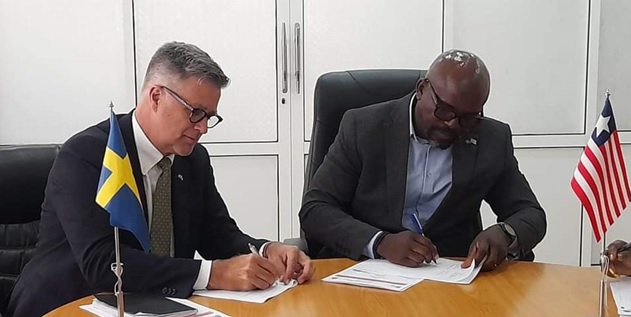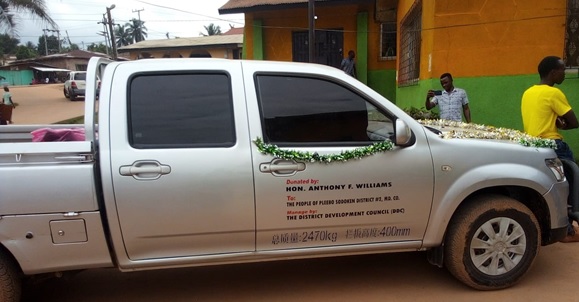MONROVIA – The Liberian-Swedish Access Driven Rural Development Program (LISA) has announced a two-year extension, entering the third phase of its initiative aimed at enhancing rural infrastructure and livelihoods across Liberia. This phase is set to provide skills training and temporary employment for 3,120 villagers, focusing primarily on the construction and maintenance of Village Access Roads (VARs) and feeder roads. By improving connectivity in rural areas, LISA aims to facilitate easier access to markets and essential services for these communities.
The extension of the LISA project aligns with the Government of Liberia’s broader decentralization policy, which seeks to empower local county administrations to effectively manage road maintenance and development. By collaborating with the Ministry of Public Works (MPW) and local contractors, LISA aims to establish sustainable road maintenance practices that will endure beyond the project’s timeline. This strategic partnership is designed to foster local expertise and ensure long-term infrastructure resilience.
Deputy Minister for Budget and Development Planning, Hon. Tanneh Brunson, highlighted the economic benefits associated with the project during her address. She emphasized that the initiative is critical to the rollout of the Local Government Development Plan, which places a significant emphasis on agriculture as a key economic driver. According to Brunson, the construction of Village Access Roads will create an enabling environment for economic growth by injecting cash into local economies through labor-based community efforts.
Valued at approximately $5 million, the LISA project aims to enhance 195 kilometers of roads across Bong, Lofa, and Nimba Counties. The goal is to boost the standard of living in these rural areas by improving transportation networks, thereby reducing poverty levels and supporting community development. Improved road access is expected to facilitate the movement of goods and services, linking rural farmers more effectively to larger markets.
Since 2009, the Liberian-Swedish Feeder Roads Project has achieved significant milestones, improving 1,000 kilometers of roads throughout its various phases. The routine maintenance of these roads will be conducted by community-based organizations (CBOs), which play a crucial role in fostering local engagement and ownership. This approach not only empowers communities but also ensures that maintenance activities are tailored to the specific needs and conditions of each area.
During the event marking the project’s extension, Swedish Ambassador to Monrovia, H.E. Urban Sjostrom, praised the strong partnership between Liberia and Sweden. He reiterated Sweden’s commitment to supporting Liberia’s road development efforts, which aim to improve access to rural roads and enhance farm-to-market corridors. Ambassador Sjostrom highlighted the successful implementation of previous project phases, which focused on constructing Village Access Roads, also known as “Track Roads.”
Public Works Minister Roland Layfette Giddings expressed his gratitude to the Government and people of Sweden for their continued support of Liberia’s national development, particularly in the area of road infrastructure. Minister Giddings noted that the launch of the LISA program aligns with the Government of Liberia’s ARREST AGENDA, where road connectivity is a crucial component. This agenda prioritizes infrastructure development as a means to drive economic progress and improve citizens’ quality of life.
The upgrade of footpaths to village access roads is anticipated to have a profound impact on the economic, social, and environmental landscape of the involved counties. By improving connectivity, the project will enable better access to education, healthcare, and other essential services, thus fostering overall community well-being. Moreover, enhanced road networks are expected to reduce transportation costs and travel time, making it easier for farmers to transport their produce to market.
LISA will continue to provide technical and social support to Community Based Organizations (CBOs), enabling them to implement their community maintenance action plans effectively. This support includes training and resources necessary to carry out road maintenance activities, thereby ensuring the sustainability and longevity of the infrastructure improvements.
In conclusion, the extended LISA initiative represents a significant investment in Liberia’s rural development, promising to transform the lives of thousands by improving access and connectivity. Through collaborative efforts and a focus on community involvement, the program aims to build a foundation for sustainable development and economic growth across the country’s rural regions.







